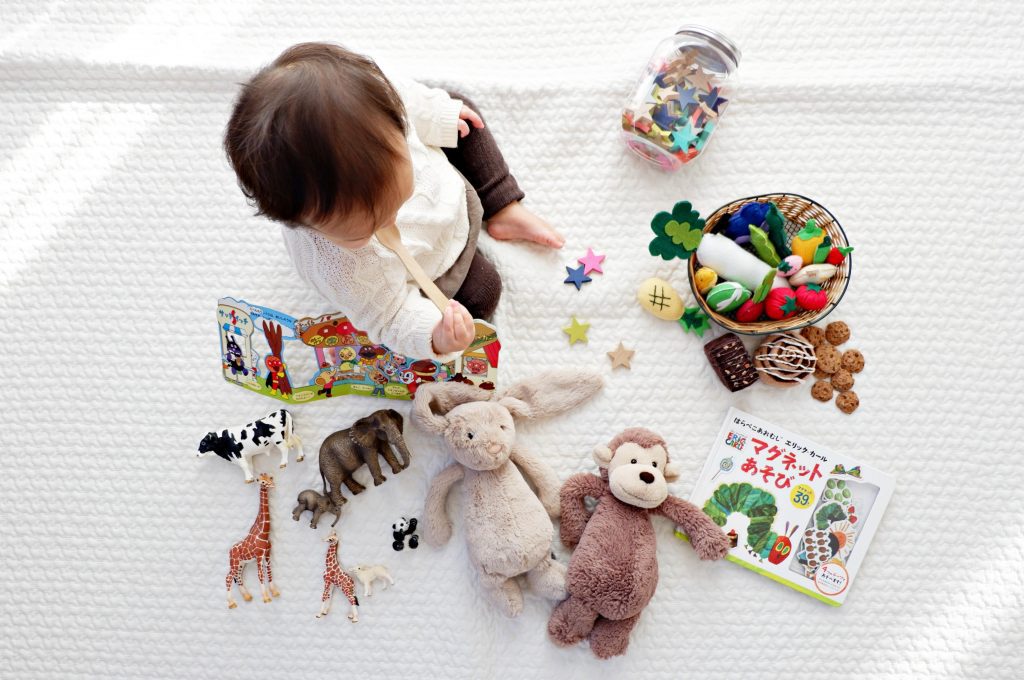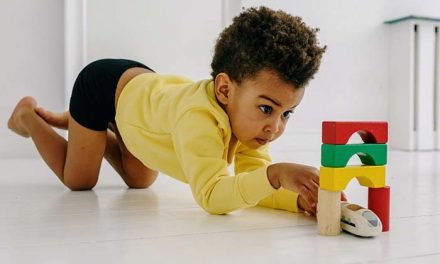The term ‘routine’ has a bit of a bad reputation as something that is forceful, repetitive, and tedious. New Indian parents like you might think of it as ‘a strict, unchanging set of actions, required to be performed at any cost’, more so if you’re working professionals, stuck in routines of your own.
If this is the way that routines are perceived, it is understandable that parents are hesitant to create one for their children. However, this couldn’t be farther from the truth. Read up about why a daily routine is important for your child.
What Does Routine Mean For A Child?
Broadly speaking, a routine is a set of guidelines and actions that your child can follow during their day to give their life a little more structure. Creating a routine for your little one helps them in a range of ways when done right.
But keep in mind that a routine made for a child should never have a punishment mechanism if the child decides to not follow it occasionally. It is simply supposed to be a way to inculcate some good habits in them that will allow them to live structured and happy lives going forward.
A few good examples of routine tasks are as follows:
- Brushing teeth first thing in the morning and right before going to bed
- Take a short nap/have some ‘quiet time’ after lunch
- Play outside for an hour
- Read for half an hour before dinner

No matter the age, a simple daily routine needs to include some fun playtime as well.
Why A Daily Routine Is Important For Your Child
It Creates Structure In Their Life
They might not understand it till later, but children, like all adults, take comfort in a sense of structure. Even though they love their version of chaos and fun, children like it when certain activities are familiar to them and easy to do. If every day is too unpredictable, and the child keeps failing to complete tasks because of their unfamiliarity with them, they might grow up to suffer from confidence issues and low self-esteem.
You can include simple household chores in the routine like ‘helping clean up after lunch’ or ‘tidy up after playtime’. Soon, these will be a part of their everyday routine that they can follow.
It Creates Good Habits In Them
Above everything, the primary objective of giving your child a routine to follow is to inculcate some good habits in them. Young children are mostly incapable of noticing when they start falling into bad patterns of behavior. Some of these behaviors develop into worse habits like a lack of sleep and excessive screen time. These can actually interfere with their growth and development if they are not curbed at the proper time.
Kids are also incapable of setting dos and don’ts for themselves as adults do. A well-crafted routine can act as a list of dos and don’ts for them. It can actually be used to break some bad habits that your child might have accidentally assimilated into their behavior.
It Makes Them Try New Things
Brushing teeth, taking baths, washing hands after they touch something dirty, and so much more – in the eyes of a child, none of these actions are interesting or beneficial in any way. Children will hesitate to try anything that is not immediately interesting to them, even if it is good for them in the long run.
But if you include these tasks in the list of things that they are supposed to do, they’re more likely to follow them. Soon, these good habits will become part of their daily lives, and something they’ll do without a second thought. The longer they do it, the easier they’ll build it into their daily lives.
It Makes Them Independent
Routines are a way of making your kids practice certain things again and again until it becomes a habit for them, and until they can eventually do them without your assistance. This also helps your kids develop things like their motor skills and memory.
Simple actions like getting dressed for school, tying their own shoelaces, & packing their books can all be taught to them by making them practice these actions through their routines.
It Teaches Them Time Management & Discipline
We all struggle with time management every now and then, and children are no different. In their case, they can take as long as they please to do even the most basic tasks if they go unchecked! Setting a routine tells them how long a task should ideally take, and builds up the habit of focusing on the task at hand instead of playing around.
For instance, you can insist they brush their teeth for 10 minutes, no more no less. Dressing up before bed should be another 10-minute activity. If their routine has them going to bed at 10 pm, they’ll soon learn that they need to wind down around then. Having such points of reference allows the child to gain a sense of time, and helps decrease their many distractions by making them focus.
Features Of A Good Routine
- It Is Flexible: The timelines and guidelines of the routine should allow room for mistakes. Children are young and inexperienced, and are bound to make mistakes. Rigidity will only make them look at the routine as a bad thing.
- It Is Fun To Follow: Children respond well to fun and games. Create games out of tasks that seem too boring or unstimulating to them. Also make it a point to include fun activities in their routine e.g. playtime, family movie night, etc. This way they’ll be encouraged to follow it more.
- It Covers Tasks That They Need To Be Independent About: Add simple yet essential tasks that they need to master as they grow. This can include things like dental hygiene, body hygiene, tidiness, and eating etiquette.
Signs Of A Bad Routine
Tasks Are Too Random: Tasks added in the routine shouldn’t be disconnected from each other. This is bound to confuse the child, as they might not see the relevance of following the routine. A routine that they understand is easier for them to follow.
There Are Punishment Mechanisms: If your child is punished for not following the routine, it will only discourage them from following it in the future. Be patient with their growth and development for them to truly benefit.
Timelines Are Too Rigid: If the timelines are too strict and you keep trying to enforce them as such, your child is bound to feel like a failure for not meeting them.
Parents Are Not Involved: Involvement of the parents, especially during the initial days of the routine, will be crucial. The child will turn to you for guidance and approval. It is important to assure them that they are doing a good job. Plus, make sure you have some family activities planned into their routine as well.

Your child’s daily routine can include simple tasks that build good habits.
Conclusion
There are many such reasons why a daily routine is important for your child, but keep in mind that it can only truly be effective if you enforce it well. A child’s mind is impressionable, and if they find a routine to be negative, it can pose bigger problems as they grow. Want some more helpful parenting tips? Subscribe to our newsletter to find that safe space and become a better parent for your little one.
FAQs On Why A Daily Routine Is Important For Your Child
How Do I Get My 3 Year Old To Follow Directions?
3-year-old children are active and highly stimulated. The key to getting them to follow instructions is to hold their attention.
- Move them away from whatever is stimulating them
- Speak quietly and clearly
- Keep the instructions easy to follow
How Do You Discipline A 3 Year Old Who Doesn’t Listen?
Never use physical punishments against children. 3-year-old children are highly stimulated by their environments and tend to be impulsive. Try to explain to them why you are telling them to do or not to do something. If that doesn’t work ask them to stop in a stern and firm voice. Once they calm down, talk with them about why they don’t like to listen. Now that you know why a daily routine is important for your child, you can also try to develop one with them to encourage responsibility and discipline.
What Is A Good Routine For A 5 Year Old?
The key is to keep it simple. No matter what is part of the routine, make sure that the tasks are relevant to them and easy to accomplish. For example, a good morning routine would look like this:
- Brush teeth
- Eat breakfast
- Wash hands before and after eating
- Get ready for bathtime
- Get dressed for school





